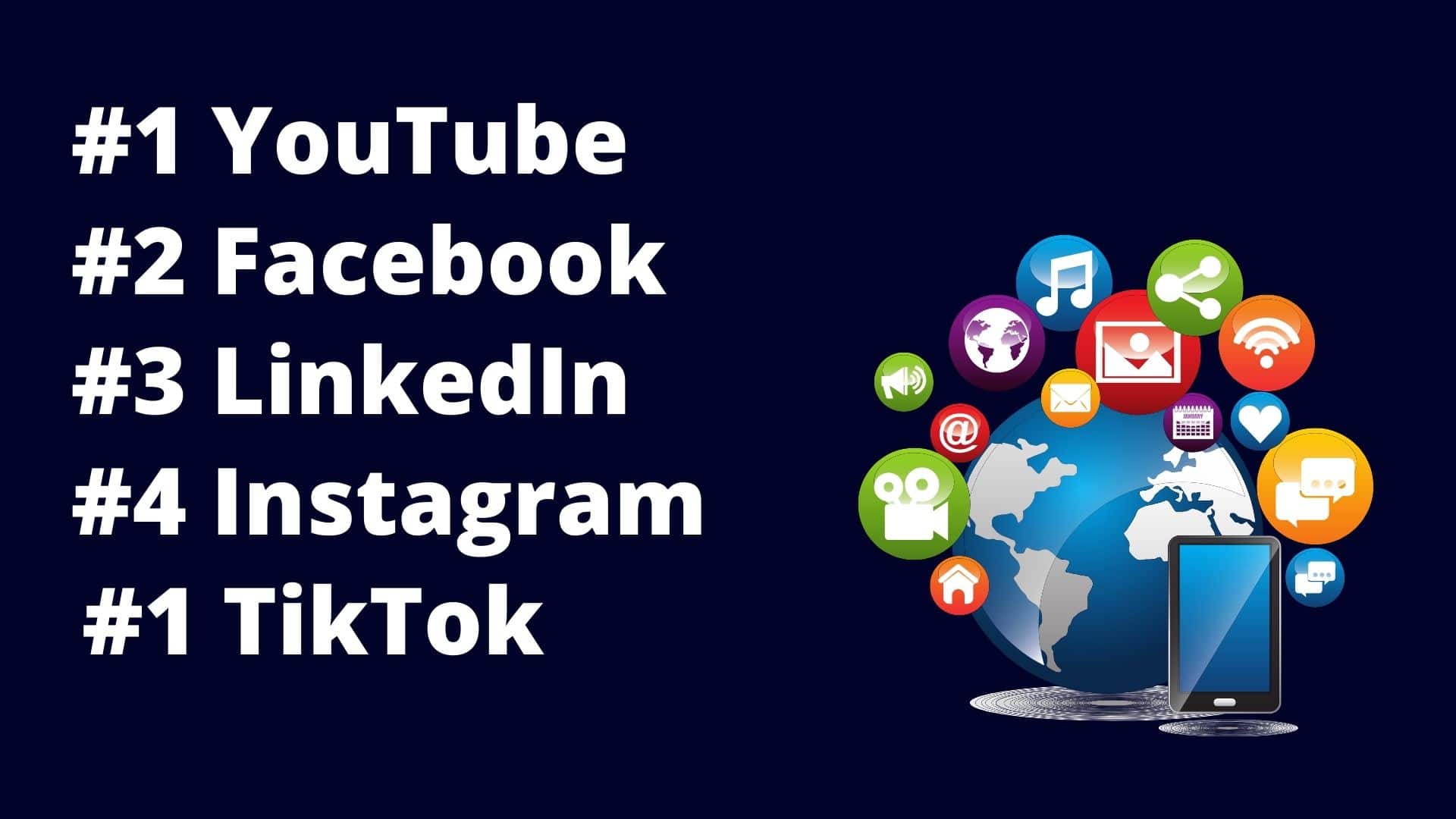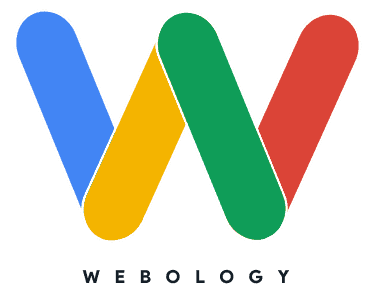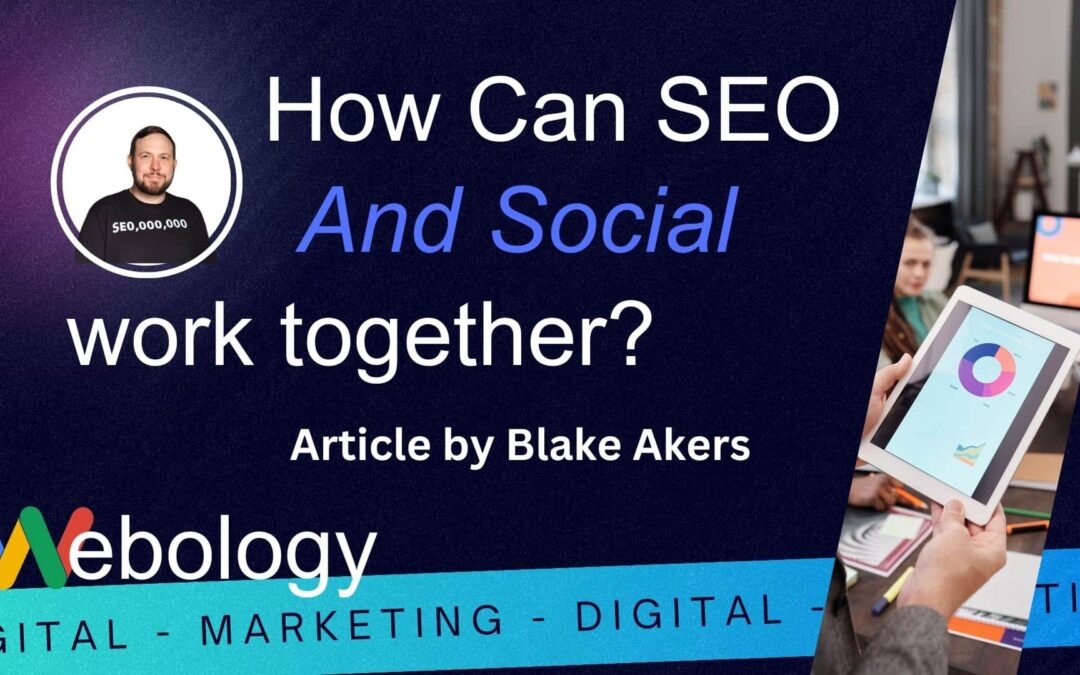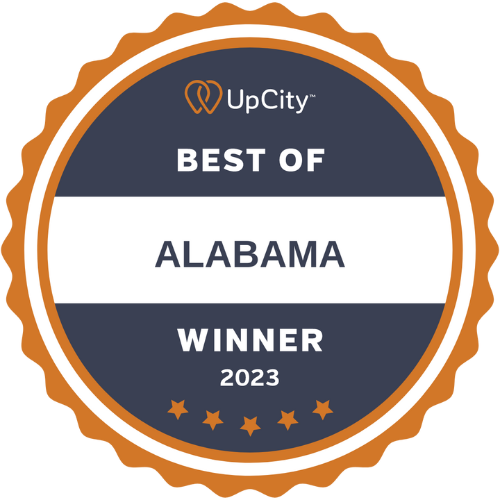Ever wondered if your social media posts could give your Google rankings a serious power-up? Hold onto your hashtags, because we’re about to dive into the wild digital world of Social Media and SEO. It’s like peanut butter and jelly – they just work better together. With Webology’s help, you’ll uncover the secrets of how social media can skyrocket your SEO game and make your content dance up the Google ladder in no-time.
Table of Contents
Why Is Social Media Important for SEO?
Social media is an integral part of any successful SEO strategy. It can help you reach a wider audience, build relationships with potential customers, and increase your visibility in search engine results by helping you check off a few boxes on your E-EAT optimization list. Social media can also assist you build trust and credibility with your target audience, leading to more conversions and sales.
Plus there’s a recent development from Google that further connects social media and SEO for local businesses:
Your GBP Profile Can Now Pull In Posts From Other Social Platforms Automatically!!!
Get the Deets from Search Engine Journal Here
So for all those reasons and many more, we’ll discuss why social media is essential for SEO and how you can use it to boost your Google rankings.
A Champ In Your Corner for SEO
Let’s get real – social media isn’t just about sharing cat memes and what you had for lunch anymore. It’s a heavyweight champ in the SEO ring, helping you sprint up those Google rankings faster than you can say “viral!”
And before you say social media links ‘don’t count for SEO anymore’ check out how fast AHREFS picked up our new profile here. We’re claiming our brand EVERYWHERE and this DA 92 site showed up in our AHREFS account less than 12 hours after we built a business page:

We already produce content for Meta and LinkedIn, so it is just a few additional clicks to share that on platforms like Tumblr, Reddit, and others for additional social signals and brand mentions. Let’s look at two more very specific tactics you can act on today:
Expanding Your Reach on Social Media with SEO Tools
With social media, you’re able to potentially reach thousands of people who are all like, “Hey, I might need what you’re selling!” But without the right audience targeting, sharing on social platforms can be alot like like throwing a net far and wide hoping to catch a passing fish. Sure, you might catch a few, but it’s not the most effective strategy.
That’s where AHREFS comes in. By using their powerful backlink analysis and keyword tracking tools, we were able to identify high authority websites that are relevant to our industry and have a large following on social media. These are the brands with the right audience for us to target and a big enough following to build a paid social advertising campaign around! That’s just one way you can use an SEO tool to help shape your social media strategy.
Using Social Media for Keyword Research
Now let’s flip the narrative and look a using Social media trends to shape your SEO strategy. TikTok is a gold mine when it comes to trending topics that have not been indexed by a search engine yet! By keeping an eye on popular hashtags and challenges, you can identify emerging keywords that have the potential to drive traffic to your website. You can then use these keywords in your content creation and optimization efforts to increase your chances of ranking for them by being the first person to write a blog post about the new trend. Being first to market gives you staying power in the SERPS and many content creators on TikTok don’t even bother to run a blog, so you can easily scoop up some organic search traffic when people start to Google whatever phrase the influencer invented.
More Benefits of Social Media for SEO
Another benefit of social media for SEO is that it can help you build backlinks. When you post content on social media, other people may share it, leading to more links pointing back to your website. This can help you improve your SEO rankings and get more organic traffic.
Finally, social media can help you build relationships with influencers in your industry. When you reach out to influencers and create relationships with them, they may be willing to share your content, leading to more exposure and backlinks.
Social media wields significant influence in enhancing SEO strategies. Leverage this potent tool to elevate your rankings. With some dedication, remarkable outcomes are within reach! Here’s 10 benefits of using social media for SEO:
| Benefit | Description |
|---|---|
| Increased Traffic | Social media posts can drive targeted traffic directly to your website. |
| Brand Awareness | Using social media platforms increases visibility for your brand. |
| Content Promotion | Social media provides an avenue for sharing and promoting content. |
| Link Building | Content shared on social media may lead to indirect link building as others link to it. |
| Improved Search Engine Ranking | Social signals may factor into search engine ranking algorithms. |
| User Engagement | Interacting with users on social media can lead to greater engagement and brand loyalty. |
| Reputation Management | Social media can be used to monitor and respond to customer feedback. |
| Customer Insights | Analytics from social media can provide valuable data on customer preferences and behaviors. |
| Targeted Advertising | Social media platforms offer powerful tools for targeted advertising based on demographics and behavior. |
| Faster Content Indexing | Content that gains traction on social media may get indexed by search engines more quickly. |
How to Leverage Social Media for SEO Success
Establish your presence on top platforms like Facebook, Twitter, and Instagram to reach a broader audience and attract more eyes to your brand’s premium content. Here’s Webology’s top 5 ways you can consistently use social media to improve your SEO:
1. Get Social: The first step to leveraging social media for SEO success is to get social. Start by creating accounts on major social media platforms like Facebook, Twitter, and Instagram. Once you’ve set up your accounts, engage with your followers and other users. Post content regularly and respond to comments and messages.
2. Optimize Your Profiles: Make sure your social media profiles are optimized for SEO. This means including relevant keywords in your profile descriptions and bios and adding links to your website.
3. Share Quality Content: Quality content is key when it comes to SEO success. Share content relevant to your industry that your followers will find interesting and useful.
4. Use Hashtags: Hashtags are a great way to get your content seen by more people. Use relevant hashtags to help your content reach a wider audience.
5. Monitor Your Results: Monitor your social media efforts to see what’s working and what’s not. This will help you adjust your strategy and optimize your content for better results.

Get Help With Social Media Marketing Today
Skip all the work and hire the experts at Webology by filling out the form below:
Advanced Strategies for Success
Once you get a consistent posting schedule and all the other basics out of the way, it’s time to leverage some advanced strategies to take your social media presence to the next level:
- Monitor social media hashtags related to your industry to discover trending keywords.
- Use social listening tools to track conversations and identify frequently used terms in your niche.
- Analyze your competitors’ social media content to see which keywords they are targeting.
- Engage with your audience by asking direct questions or conducting polls to uncover their interests and common language.
- Join relevant social media groups or forums and observe the language and topics that are most frequently discussed.
- Look at the most popular posts in your industry on social media platforms to identify potential keywords.
- Analyze the keywords in user-generated content, such as reviews or testimonials on social media.
- Use social media advertising insights to see which keywords resonate with your audience based on ad performance.
- Study trending topics on platforms like Twitter to understand upcoming keywords that could be relevant to your business.
- Analyze the captions, comments, and posts that influencers in your industry use to determine popular keywords.
- Utilize Twitter’s advanced search to find specific phrases and keywords people use in their tweets.
- Follow relevant subreddits or other content-based platforms to see what keywords are emerging in discussions.
- Use Pinterest search to see auto-suggestions, which can provide insight into popular search terms in your industry.
- Explore YouTube’s search suggestions and analyze popular video titles and descriptions for keywords.
- Utilize social media analytics tools to measure keyword performance over time on your own profiles.
- Examine the tags used on platforms like Instagram to identify which keywords your audience follows.
- Collaborate with social media influencers to learn about popular keywords within their communities.
- Look at the language used in viral content on platforms like TikTok to catch emerging keywords early.
- Stay updated with social media platform updates to leverage new features (like new Instagram Reels) for keyword discovery.
- Track branded keywords to understand how your audience is talking about your company or products on social media.
- Use SEO tools with a social media analytics feature to get keyword insights from various platforms in one place.
- Scour through comments on your social media posts to gain insights into questions and keywords your audience is interested in.
- Take advantage of LinkedIn’s search bar to find out what professionals in your field are discussing and the keywords they’re using.
- Look at meta tags and descriptions of popular social media profiles in your niche for keyword ideas.
- Use Facebook’s Audience Insights to see what interests your followers have and match those with potential keywords.
View All Webology SEO and Marketing Services Here
Which Platforms Benefit SEO The Most?
If you’re trying to get the most mileage out of your posts, you may be wondering which social media platforms are most beneficial for SEO. The truth is, all of them can have an impact on your search engine rankings if used strategically.
Presently, I would have to say YouTube stands out here as my #1 choice because it’s a search engine in its own right. YouTube videos frequently get featured in Google SERPS and you can leverage all that video content on your website by embedding videos from your channel into relevant pages or posts. That increases time on the page, which may indicate to Google that your content is of a higher quality.
Facebook, with its massive user base and extensive advertising options, is a top contender for the #2 spot when it comes to boosting SEO. By using Facebook’s Audience Insights to understand your followers’ interests and utilizing keywords in your posts and page descriptions, you can improve your visibility on the platform as well as in search results.
LinkedIn is a powerful tool for B2B companies looking to improve their SEO. With its focus on professional networking and industry-specific groups, LinkedIn can help you connect with potential customers and partners while also boosting your search rankings. By regularly sharing valuable content and actively participating in relevant discussions, you can establish yourself as an authority in your industry and gain more visibility for your brand.
Instagram may not seem like an obvious choice for SEO optimization, but its popularity and visual nature make it a valuable tool for businesses. By using hashtags strategically and engaging with influencers in your niche, you can increase your reach on the platform and drive traffic to your website. Additionally, Instagram’s algorithm favors accounts with high engagement rates, which means that consistently posting high-quality content can improve your chances of being seen by new users.

Here’s how we ranked all the rest:
The Top Social Media Platforms for SEO
- YouTube
- TikTok
- Tumblr
- Yelp
- Telegram
- Twitch
- Discord
- Snapchat
- Quora
- Signal
- Skype
- Viber
- Line
- Nextdoor
- Flickr
- Meetup
- Threads
- Mastodon
- BlueSky
Schema Markup and Social Media
Schema markup is a type of code that can be added to your website’s HTML to provide search engines with more information about your content. This can help improve the way your website appears in search engine results pages (SERPs) and make it more attractive to users.
Social media can play a role in displaying schema markup. For example, when you share a link on social media, platforms like Facebook and Twitter will often pull in information such as the title, description, and image from the webpage’s metadata or Open Graph tags. By implementing schema markup on your website, you can ensure that this information is accurate and optimized for social sharing.
| Element | Description | Usage | Example |
|---|---|---|---|
sameAs | Indicates URLs that represent the same thing as the subject of the schema. | Used within schema.org types to reference equivalent pages or social media profiles. | <script type="application/ld+json">
{
"@context": "http://schema.org",
"@type": "Person",
"name": "John Doe",
"url": "http://www.johndoe.com",
"sameAs": [
"http://www.facebook.com/johndoe",
"http://www.twitter.com/johndoe",
"http://www.linkedin.com/in/johndoe"
]
}
</script>
|
| Social Media Profiles | Online platforms where user creates a profile for personal or business representation. | Included in the sameAs property to showcase an entity’s presence across different social platforms. |
|
| Schema.org Context | The context that defines the vocabulary for schema.org. | Always set to http://schema.org when using schema.org types and properties. | "@context": "http://schema.org" |
| Schema.org Type | The specific category or type of item being described. | Sets what the data is about, such as a Person, Organization, Event, etc. | "@type": "Organization" |
Q&A With Blake Akers, CEO of Webology
1. What is the importance of social media for SEO?
Social media is an integral part of SEO because it helps to increase visibility and brand awareness. It also allows the building of relationships with customers, which can lead to more website traffic and higher search engine rankings. Additionally, social media can help generate quality backlinks, which is essential for SEO success.
2. How does social media help with SEO?
Social media helps with SEO by increasing visibility and brand awareness, building customer relationships, and generating quality backlinks. Additionally, social media can help create content that is more likely to be shared, leading to more website traffic and higher search engine rankings.
3. What are the benefits of using social media for SEO?
The benefits of using social media for SEO include increased visibility and brand awareness, building customer relationships, and generating quality backlinks. Additionally, social media can help create content that is more likely to be shared, leading to more website traffic and higher search engine rankings.
4. How can I use social media to improve my SEO?
To improve your SEO with social media, you should focus on creating attractive, engaging content that will likely be shared. Additionally, you should use social media to build customer relationships and generate quality backlinks.
5. What are the best practices for using social media for SEO?
The best practices for using social media for SEO include creating interesting, engaging content that is likely to be shared. Additionally, you should use social media to build customer relationships and generate quality backlinks.
6. How can I measure the success of my social media SEO efforts?
You can measure the success of your social media SEO efforts by tracking website traffic, search engine rankings, and the number of quality backlinks generated. Additionally, you can measure the success of your social media efforts’ success by tracking your content’s engagement, such as likes, shares, and comments.
7. What are the risks of using social media for SEO?
The risks of using social media for SEO include the potential for spammy content, which can lead to a decrease in website traffic and search engine rankings. Additionally, there is the potential for negative feedback from customers, which can damage your brand reputation.
Blake’s Final Thoughts
Social media plays a pivotal role in SEO by enhancing visibility, fostering relationships, and establishing brand awareness. It enables you to drive traffic to your website, potentially boosting conversions and sales. Moreover, social media cultivates trust and credibility with prospective customers, ultimately driving sales. Lastly, it contributes to enhancing search engine rankings, resulting in increased organic traffic and improved rankings on search engine results pages. At Webology, we understand the importance of social media in SEO and offer services to help your business thrive in this ever-changing digital landscape.
Through strategic content creation and curation, we can engage with your target audience on various social media platforms. By crafting compelling posts, sharing valuable information, and interacting with followers, we can create a strong online presence for your brand. This not only helps build a loyal customer base but also allows for increased visibility and reach among potential customers. Reach out to us today to learn more about our social media management services and how they can benefit your business.














